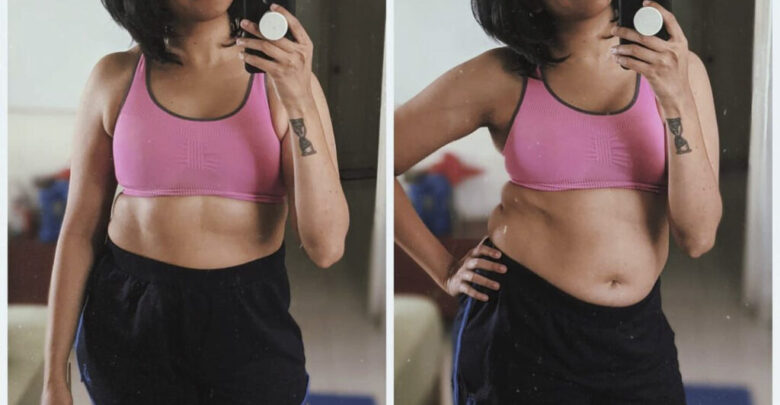

PUNE, India — Victoria’s Secret recently announced two new partnerships — The VS Collective and The Victoria’s Secret Global Fund for Women’s Cancers.
The brand has pulled in a diverse group of representatives for the VS collective which includes, Indian actress Priyanka Chopra, plus-size model Paloma Elesser, journalist Amanda de Cadenet, the US Women’s Soccer team captain, Megan Rapinoe, among others.
Chopra said she is excited to bring about “meaningful” change at one of the world’s most iconic brands in an Instagram post.
“Representation matters,” she said.
“It’s crucial for us to show everyone ALL over the world that they matter and are seen! As a founding partner of #TheVSCollective and advisor to the business, this is exactly what I intend to do.”

However, the change wasn’t “meaningful” enough at least for some Indian body positivity activists who feel that the move is nothing more than mere tokenism.
“It’s more of a business decision than an ethics-based choice,” says Urvashi Goverdhan, a body positivity activist based in Bengaluru, India.
“Taking Priyanka Chopra as a woman of color to diversify their image is an obvious choice, but she or the other women on the list, except for Paloma Elesser, aren’t body positivity figures and neither have they done any work in this area.”
Goverdhan says that the change is too little, too late, but she acknowledges that it is a move in the right direction.
“I remember being 21 and watching their iconic fashion show and feeling like sh-t about my body. But hopefully from here on, they’ll diversify more.”
Goverdhan points out that there are a lot of problems in the body positivity space, too, that promotes only one body type — an hourglass figure.
“Some women carry their weight in the middle, and not everyone who is a plus-size has an hourglass shape, so this also needs to change.”
Victoria’s Secret intends to phase out its “Angels,” or supermodels who formerly represented the business in fashion shows and modeling campaigns.
The Angels were an icon of the Victoria’s Secret Fashion Show, which was called out for its misogynistic portrayal of women’s bodies in 2018. Victoria’s Secret is attempting to restore itself as a prominent lingerie brand with the redesign. Martin Waters, the chief executive of Victoria’s Secret, said that the Angels were no longer “culturally relevant.”
“At Victoria’s Secret, we are on an incredible journey to become the world’s leading advocate for women,” Waters said in a press release.
“This is a dramatic shift for our brand, and it’s a shift that we embrace from our core. These new initiatives are just the beginning. We are energized and humbled by the work ahead of us.”
The Victoria’s Secret move has received a fair share of skepticism internationally.
Cora Harrington of The Lingerie Addict , a lingerie brand and intimate apparel blog, tweeted about the information, writing, “Any rebrand without a size expansion is DOA (dead on arrival). I don’t think this new VS Council or whatever it’s called will change Victoria’s Secret brand credibility. It might hurt the image of those associated with it, though.”

The lingerie brand had global net sales amounting to approximately $5.4 billion in 2020, a dramatic fall from 2018 and 2019 when the net sales amounted to $7.3 billion and 7.5 billion, respectively.
This was around the time when singer Rihanna launched her lingerie brand Savage X Fenty. The latter lingerie brand has established itself as a body-positive and size-inclusive brand and gained respect as a woman empowering brand for women of all shapes and sizes.
Research by World Benchmarking Alliance showed that L Brands, Victoria’s Secret parent company falls below average on the new 2021 Gender Benchmark index. The study was published in June 2021, where L Brands scored a meager 17 out of 100 on the index, which evaluated how 35 of the world’s largest apparel companies addressed the U.N.’s fifth Sustainable Development Goal: increasing gender equality and empowering women.
Saloni Chopra, an Indian-born Australian actor, and model, who has worked in Bollywood and Indian television, is a body positivity advocate. She says that it’s crucial to hold brands accountable for the damage they’ve done, but it’s also essential to acknowledge the change.
“I would love to see more brands rope in brown women and people of color, diversity, and different body types — not all changes happen because of a moral awareness,” she said.
“A lot of campaigns/changes are made under pressure, some are made because it’s what the public demands and are popular. Either way, it’s helping shape a better society with more diversity — and a lot of that is because of our collective voices.”
Recently, Sabyasachi Mukherjee, the Indian fashion and jewelry designer, who has gained popularity worldwide, hired the 25-year-old plus-size model Varshita Thatavarthi for his collection.

Thatavarthi says that after her first campaign with Sabyasachi, she was informed that the brand had succeeded in creating some visibility for the other aspiring plus size models with her success. Yet, she still doesn’t see modeling agencies signing more than one or two plus-size models.
Another luxury, resort wear and swimwear brand from India, Shivan and Narresh, hired a plus-size model for the showcase of their collection titled “Wilding 20s,” which garnered a lot of attention and praise.
“Some designers are hesitant to book plus size models for their shows and campaigns because they’re afraid that it might come across as a marketing gimmick,” Thatavarthi said.
She also mentions that she never understood why she is constantly approached to talk extensively on the body positivity topic in magazines and social media when the best way she can bring about change is by getting more work in the industry.
“I can be made to walk the talk by getting fashion editorials to do which is exactly what the West is doing with the curvier models,” she said. “They are embracing them on their covers. So just having one of us on board is not inclusivity. It’s plain tokenism.”
Thatavarthi says that if people want to promote diversity and inclusivity in fashion, then people need to work collectively to change the “sample size mindset.” She says that change in top-rated brands such as VS was long overdue to stay relevant with today’s times.
“People are demanding representation of all body types in high-end magazines, runways, billboards, and practically everywhere because they feel the need to see more ‘real’ women like them, and that is exactly why brands are now rethinking their outdated marketing modules and focusing on inclusivity and diversity in fashion.”
(Edited by Anindita Ghosh and Amrita Das)
The post Best Bra None? Victoria’s Secret Rebranding A Sham Say Body Positivity Experts appeared first on Zenger News.




